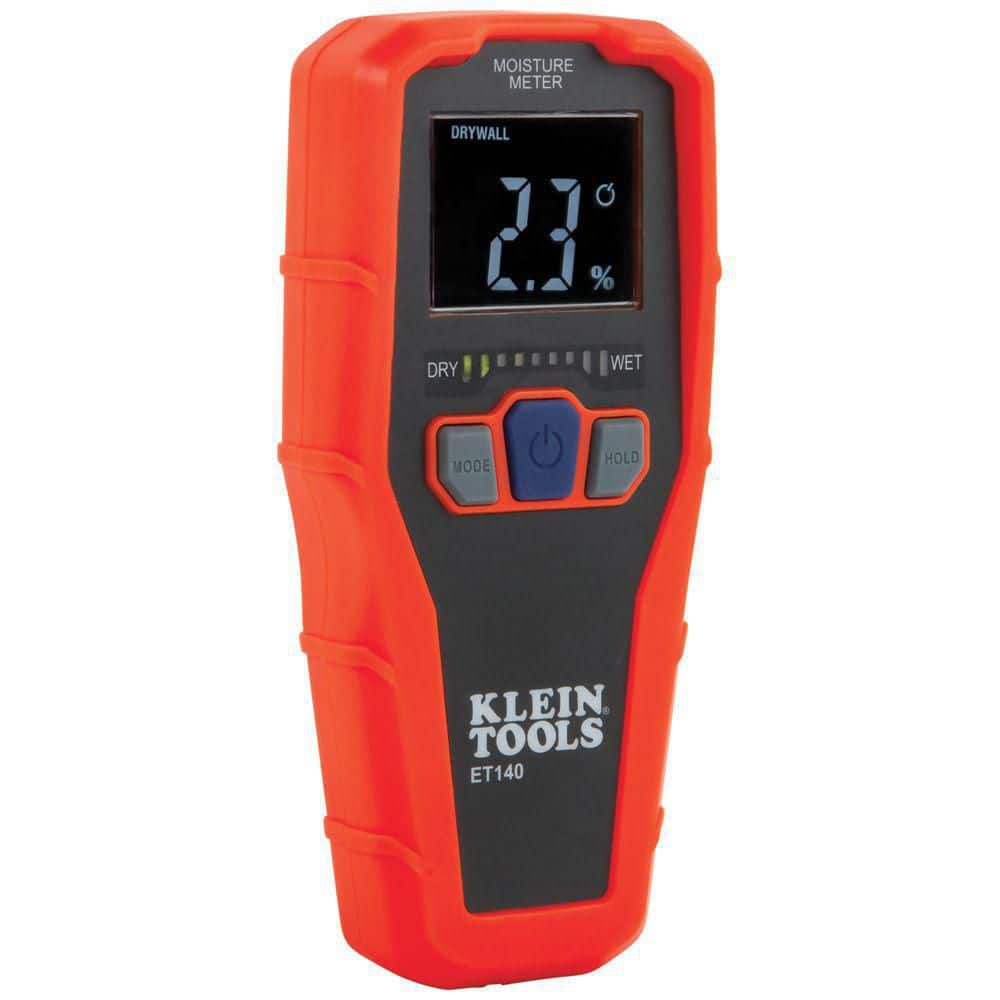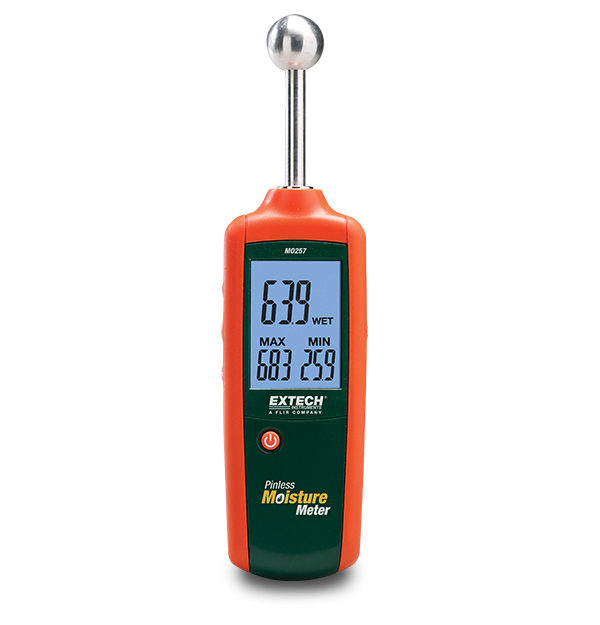Moisture Meter Buying Guide: What to Look for in High-Quality Instruments
The Ultimate Overview to Moisture Meters: A Comprehensive Review and Just How They Can Save You Money
In the world of structure maintenance, building, and different markets, the significance of accurately gauging dampness degrees can not be overstated. Dampness meters function as important tools in spotting and monitoring moisture web content in products, aiding in protecting against expensive problems and making sure the high quality of items. Comprehending the nuances of various sorts of dampness meters, their applications, and the potential cost-saving advantages they provide can be a game-changer for experts and organizations alike. Finding how these gadgets can not just enhance processes yet also add to financial cost savings is a trip worth starting.
Kinds of Moisture Meters
Different sorts of dampness meters are available for different applications in different sectors. One common type is the pin-type dampness meter, which determines the electric resistance in between two pins inserted into a product. This type is appropriate for timber, drywall, and other structure products. Pinless wetness meters, on the other hand, usage electromagnetic sensing unit plates to check a bigger area without causing damages to the material's surface. These meters are perfect for swiftly analyzing dampness levels in big areas such as floorings and walls.
Additionally, there are likewise specialty dampness meters made for particular materials like soil, grain, or hay. These meters supply precise moisture readings tailored to the unique homes of the material being checked. Infrared wetness meters measure the thermal residential or commercial properties of a product to identify its dampness material non-invasively, making them useful for applications where pin or pinless meters might not appropriate. Comprehending the different kinds of wetness meters readily available can assist industries choose one of the most appropriate device for their certain moisture dimension demands.

Benefits of Using Moisture Meters

Additionally, using moisture meters can bring about enhanced energy efficiency. By determining areas with high dampness degrees, such as leakages or inadequate insulation, changes can be made to improve energy conservation and decrease utility costs. In agricultural settings, moisture meters play an important function in enhancing plant yields by allowing farmers to keep track of soil wetness levels and make informed irrigation choices. On the whole, the advantages of making use of dampness meters cover throughout different markets, giving cost-effective options and advertising better high quality control techniques.
Just How to Pick the Right Moisture Meter
Choosing the suitable dampness meter includes considering key variables such as product compatibility, measurement range, and calibration precision. When choosing a dampness meter, it's necessary to make sure that the meter is appropriate for the specific product you will be screening. Different products have differing electric properties that can influence moisture analyses, so selecting a meter created for your material is essential for exact results. Furthermore, consider the measurement variety of the wetness meter. Ensure that the meter can detect moisture degrees within the variety needed for your applications. Calibration accuracy is an additional important factor to remember (Moisture Meter). Go with a moisture meter with dependable calibration to make sure specific and constant readings. Some meters might require routine calibration adjustments, so recognizing the calibration process is essential. Discover More By very carefully evaluating these elements, you can choose a moisture meter that fulfills your requirements and offers accurate wetness measurements for your jobs.
Proper Strategies for Moisture Meter Usage
To make certain accurate dampness readings and maximize the performance of a wetness meter, using proper methods is crucial. When making use of a pin-type moisture meter, put the pins or probes into the product being checked till they make complete contact. Guarantee the pins are perpendicular to the surface area to obtain one of the most precise reading. For pinless dampness meters, hold the device flat against the product and move it gradually to cover the whole location for an average analysis. It's vital to adjust the dampness meter according to the material being examined to enhance precision. Take numerous analyses across the surface area and ordinary them out for an extra trustworthy result. Furthermore, make certain that the material being tested is accommodated to the setting to avoid skewed analyses. Regular upkeep of the dampness meter, such as cleaning up the pins or sensor, is additionally vital get more to make sure regular and precise readings. By complying with these correct methods, individuals can count on their wetness meter to supply trustworthy wetness degrees, aiding in avoiding pricey damages or guaranteeing high quality in different applications.

Expense Financial Savings Through Moisture Meter Applications
Exactly how can the calculated utilization of wetness meters lead to considerable price financial savings throughout different markets? In the agriculture market, moisture meters aid in determining the optimum time for gathering crops, protecting against excess or over-drying wetness that can influence the last item's high quality.

Furthermore, in the food handling sector, moisture meters are crucial for keeping an eye on item high quality and making sure conformity with security laws. By precisely determining moisture content in food, producers can stop spoilage, preserve freshness, and reduce waste, causing considerable expense savings. Overall, the strategic application of dampness meters is a useful investment that can lead to significant expense reductions and boosted effectiveness across numerous markets.
Conclusion
To conclude, wetness meters are beneficial devices for discovering and measuring moisture degrees in various products. By using the ideal dampness meter and complying with correct techniques, customers can successfully avoid pricey damages brought on by excess moisture. Purchasing a high quality dampness meter can result in substantial cost financial savings over time by recognizing prospective problems early on and allowing prompt removal. Inevitably, moisture meters are vital instruments for preserving the stability and longevity of structures and materials.
Wetness meters serve as important devices in spotting and keeping an eye on moisture web content in products, assisting in preventing costly damages and guaranteeing the top quality of products. Infrared moisture meters measure the thermal buildings of a product to establish its dampness web content non-invasively, making them valuable for applications where pin or pinless meters may not be ideal.Moisture meters supply indispensable benefits in accurately keeping track of and evaluating moisture levels in varied products and atmospheres. In agricultural settings, wetness meters play a critical duty in maximizing plant yields by enabling farmers to monitor dirt dampness degrees and make educated watering decisions.In conclusion, dampness meters are useful tools for discovering and measuring wetness levels in numerous materials.